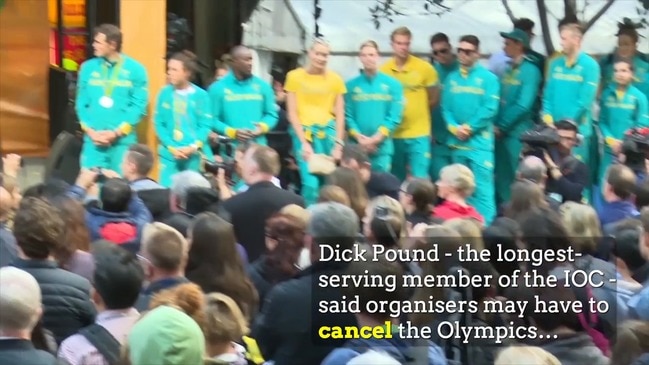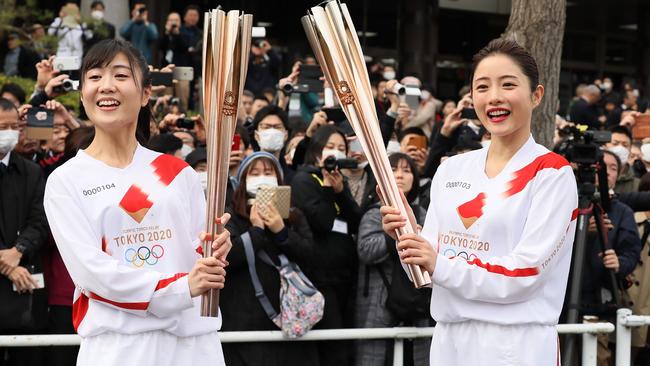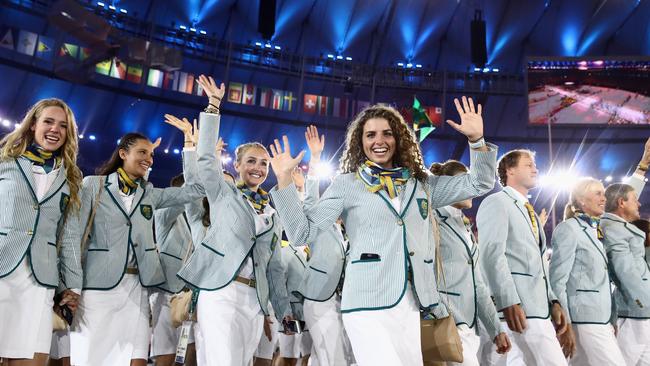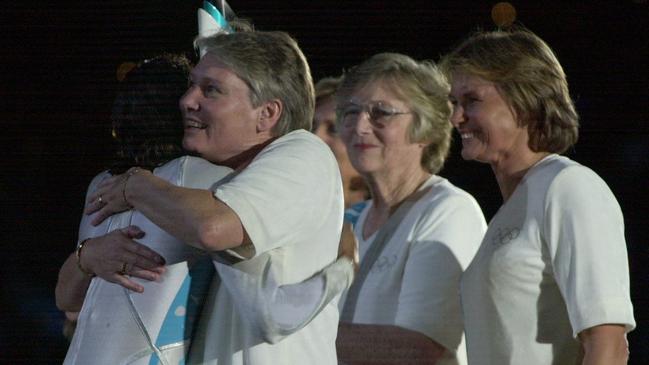Don’t cancel Tokyo Olympics — it’s the gender equality games
With coronavirus threatening the Tokyo Olympics, there is a significant reason why the 2020 games must go ahead: it will be the first in history with a near equal gender balance of competitors, writes Dhuse Manogram.

Rendezview
Don't miss out on the headlines from Rendezview. Followed categories will be added to My News.
With speculation mounting that coronavirus could put the Tokyo Olympics in doubt, there are valid fears the biggest event of the year may be called off.
But there is a significant reason why the 2020 games must go ahead: it will be the first in history with a near equal gender balance of competitors.
It was Baron Pierre de Coubertin’s vision that led to the birth of the modern Olympic Games in 1896, but no women were permitted to participate because he thought they “were not cut out to sustain certain shocks”.
He also thought the inclusion of women’s competitions was “impractical, uninteresting, ungainly, and improper.”
Mercifully, times have changed and continue to change, albeit slower than many would like.
This year’s Tokyo Olympic Games is likely to achieve a female participation rate of 49 per cent, up from 45.6 per cent at the 2016 Rio Olympic Games. Female participation rates were only 2.2 per cent for the 1900 Paris Olympics, 9.5 per cent at London in 1948 before climbing to 23 per cent at the 1984 Los Angeles Games.

The Tokyo Games increase is largely attributed to the inclusion of 18 mixed teams’ events – up from nine mixed events at the 2016 Rio Olympics – including the mixed 4x100m medley relay in swimming and the mixed 4x400m in athletics.
The 50k walk is the only men’s medal event on the Tokyo Olympic track and field program with no female equivalent after the Court of Arbitration for Sport (CAS) earlier this month rejected an appeal by a group of athletes to have the women’s 50km walk included in the athletics program.
Seven athletes, including Portugal’s 2017 50km walk world champion Ines Henriques and Australia’s Claire Woods, filed appeals against the IOC and World Athletics, but CAS ruled the issue was out of its jurisdiction.
The gender balance of the Australian team will be confirmed in months ahead and it is possible there will be once again more females than males on the team for the second successive Games.
The Australian team at the Rio Olympics comprised a female majority of 50.7 per cent.
Team Great Britain seems certain to create history in Tokyo with its estimated team of 380 athletes likely to have a 55-45 or 53-47 split in favour of women.
And the power of female athletes supercharged USA’s medal dominance at the 2016 Rio and 2012 London Olympics.

USA won 121 medals in Rio with female athletes capturing 61 medals compared to 55 for male athletes, including 27 of its 56 gold medals.
It has been a long stated ambition of the International Olympic Committee to improve gender balance across all areas of the Olympic movement – not just in competition.
There will be full gender equality in athlete quotas and medal events at the Paris 2024 Olympic Games and at the 2026 Olympic Winter Games to be held in Milan and Cortina d’Ampezzo in Italy.
IOC President Thomas Bach has said that he believes sport is one of the most powerful platforms for promoting gender equality and empowering women and girls.
“As the leader of the Olympic Movement, the IOC has an important responsibility to take action when it comes to gender equality – a basic human right of profound importance and a fundamental principle of the Olympic Charter,” Bach said.
Despite this progress, there is still more to do.
The Australia Olympic Committee has also been at the forefront of promoting gender equality.
At the Sydney 2000 Olympic Games Opening Ceremony, it was a highly symbolic moment when 100 years after the first female athletes competed at the Olympics, six of Australia’s greatest female Olympians — Dawn Fraser, Betty Cuthbert, Shirley Strickland de la Hunty, Raelene Boyle, Debbie Flintoff-King and Shane Gould — paraded the Olympic torch inside the Stadium before handing it over to Cathy Freeman to light the flame.

It was Boyle who broke new ground when she carried the Australian flag at the 1976 Montreal Olympic Games opening ceremony. And there have since been four further Summer Games and three Winter Games female Australian flag bearers, while Kitty Chiller was named Australia’s first ever female Chef de Mission at the Rio Games.
But it is in coaching where females are hugely under-represented across the IOC member nations.
At the 2012 London and 2016 Rio Olympics, the number of accredited female coaches was only 11 per cent, with just 9 per cent of coaches on the Australian team female. There’s no doubt barriers need to be broken across coaching at all levels of sport. Clear female coaching target numbers need to be established, coaching programs and career pathways must be set, monitored, reviewed and enhanced.
It has been a long and bumpy ride for women in Olympics, and the gender gaps are closing.
Coubertin certainly would not approve of the shifting tide, but women have proven they are indeed cut out to sustain “certain shocks”.
Dhuse Manogram is a Harvard Business School alumnus and an Australian sports administrator
Originally published as Don’t cancel Tokyo Olympics — it’s the gender equality games
